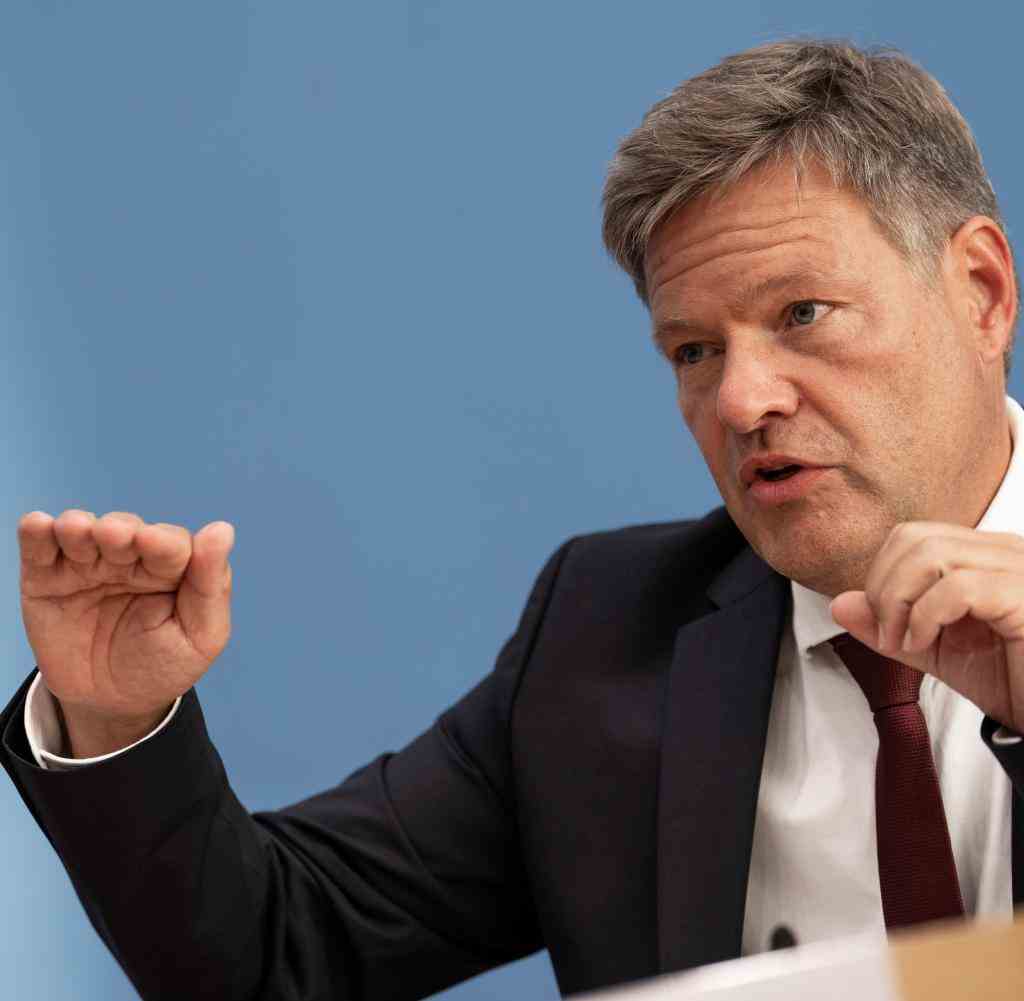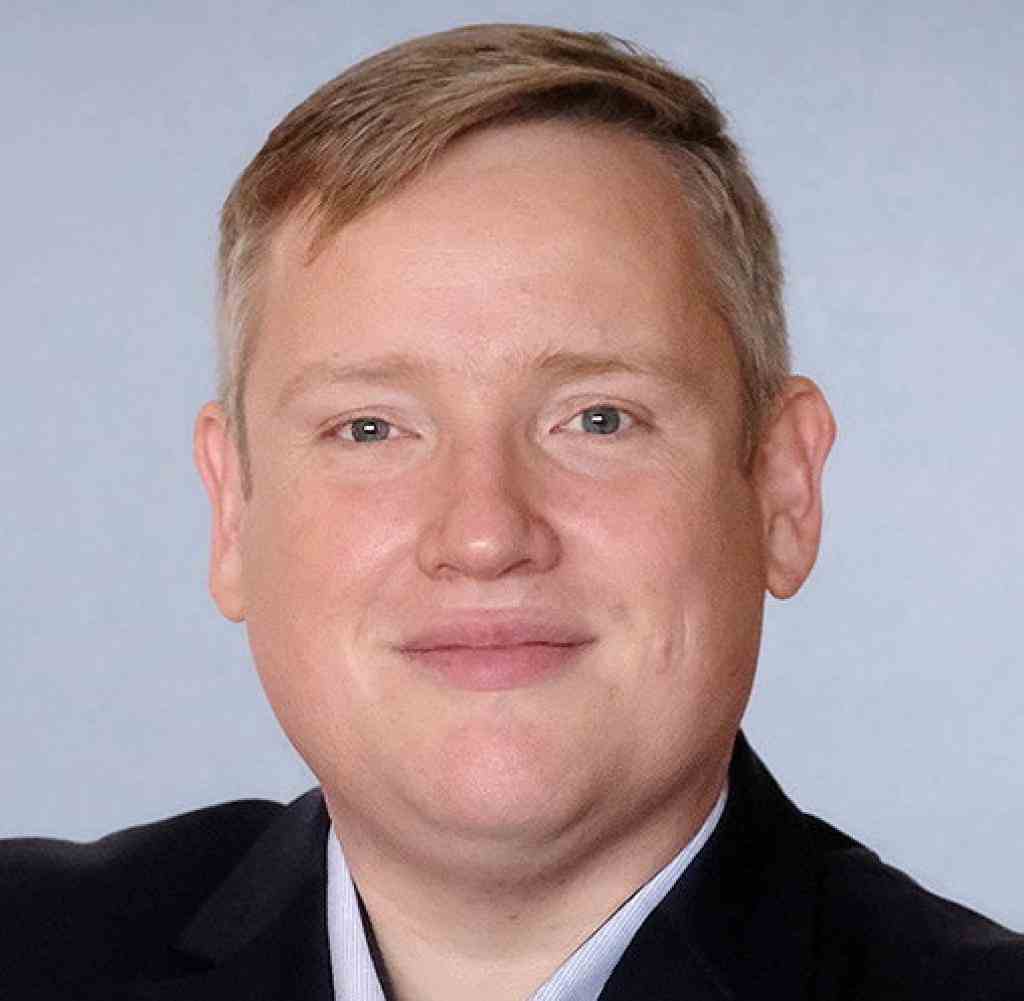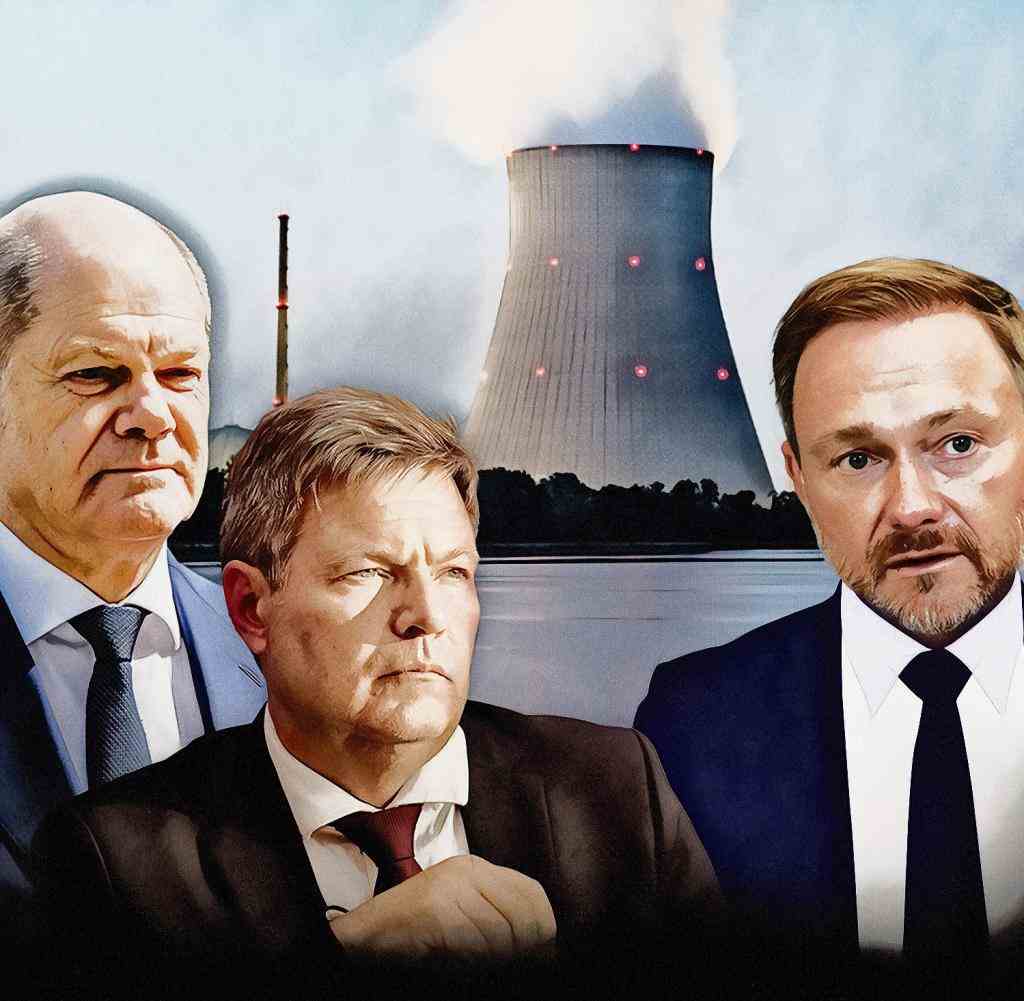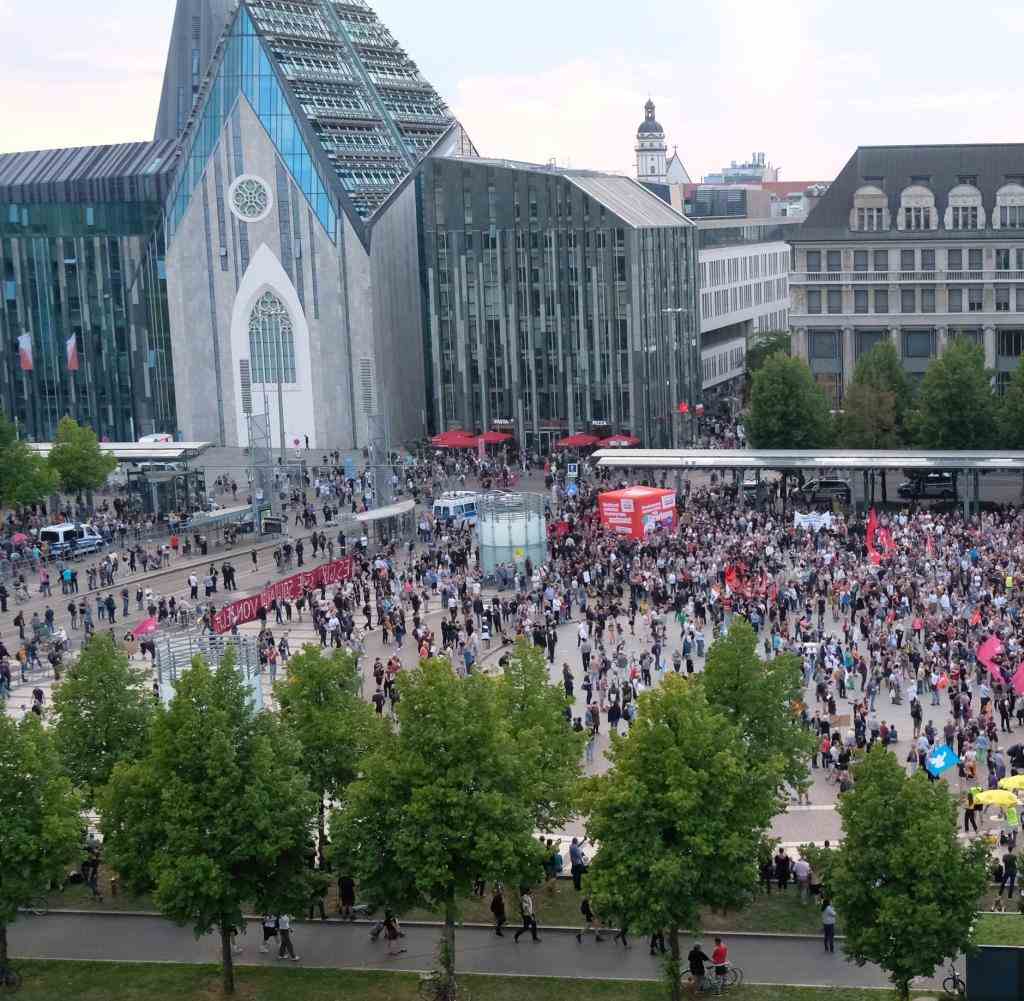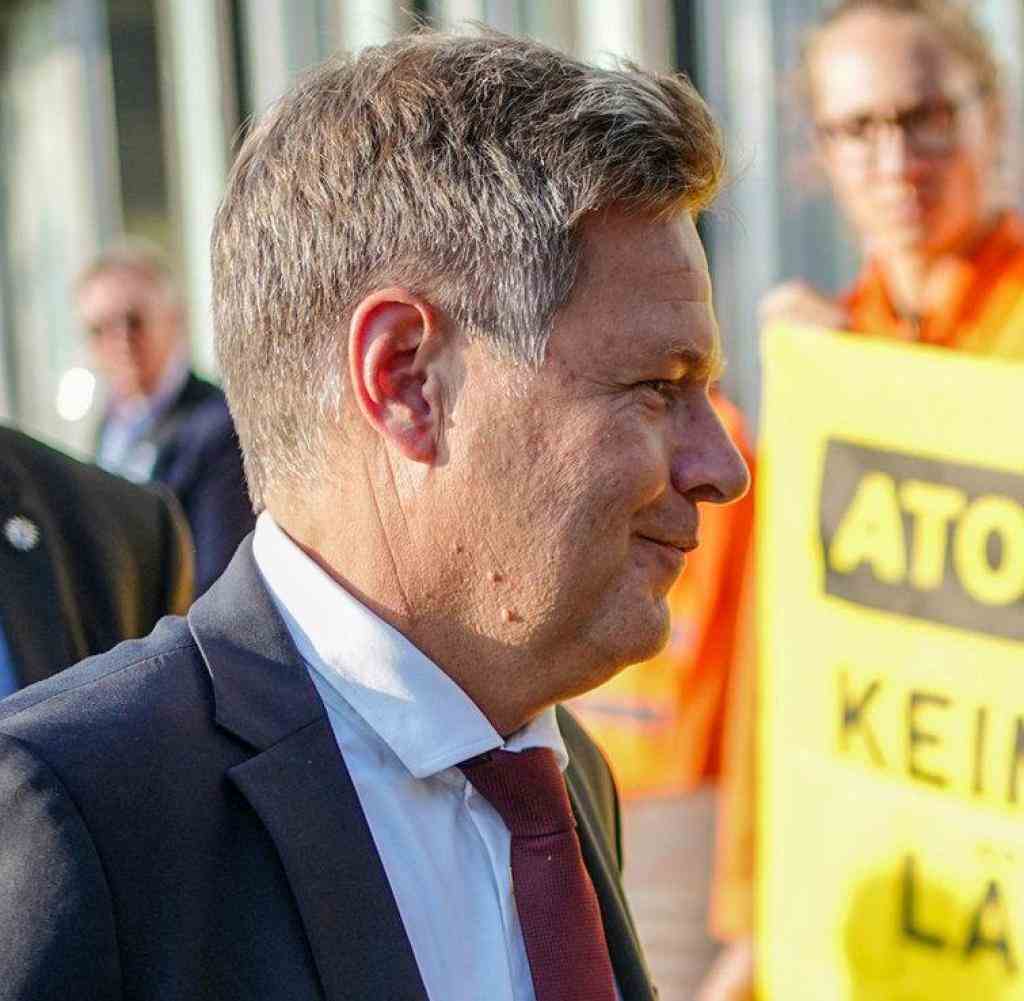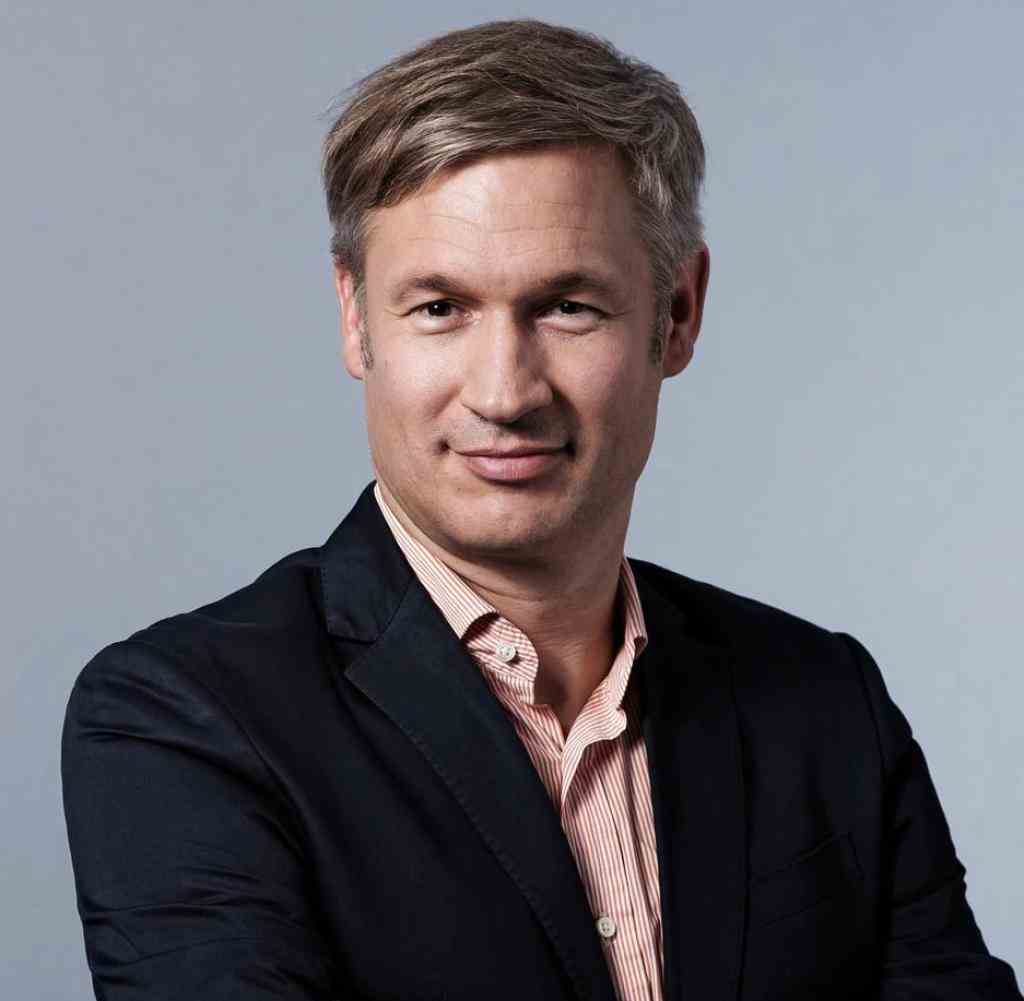EThere is probably no one who would like to trade with Robert Habeck (Greens) at the moment. He started with high ambitions to shape a sustainable, climate-friendly economic policy in the country and certainly to secure a few personal advantages for the future. Now he must deal with the worst energy crisis since World War II, and pay the price for what generations of governments before him have spoiled.
Nevertheless, he is now a minister and entrusted with the task of keeping the German economy alive. In this role he sat on Tuesday evening in the Broadcast by Sandra Maischberger in the ARD. Habeck must have guessed that it would not be a performance for which he would have to pay entertainment tax in the end. But he probably didn’t foresee how much he had to fight.
Robert Habeck (Greens) with Sandra Maischberger
Source: ARD
At the beginning of the one-to-one conversation, which millions of Germans watched, Habeck was allowed to sell the small successes that exist despite the difficult situation. The German gas storage facilities are already almost 90 percent full at the beginning of September, although no gas has flowed through the Nord Stream 1 pipeline for days.
Habeck explains this with the decline in consumption, which was also due to the mild summer. But also with the fact that companies have already throttled their production. “It’s going to be a tough winter, and it’s going to be politically challenging without a doubt. There will be unreasonable demands, at least in terms of price for the German population,” says Habeck. However, if overall consumption falls 20 percent below the average, “we have a chance with the additional capacities. If we get through this winter, it will be easier after that.”
Maischberger is not squeamish about Habeck
Sandra Maischberger is not squeamish this evening with the Green politician. She ends this part of the conversation, which should be the last really pleasant one for Habeck, with a first verbal uppercut. “Tips for washcloths on how long we should shower: Do you understand that people are annoyed by this kind of paternalism?” should.
Habeck explains that fossil power plants are being integrated more, for various reasons not at full load. “Within months we had to repair what had previously been built up as a major political dependency,” he says. “It’s not paternalism, there are savings tips that illuminate the blind spots that we have in everyday life.” It’s not a “you, you, you” campaign, quite the opposite: “I have the feeling that the Majority of Germans want that. The common feeling that we can limit ourselves a bit and make our small contribution.”
Maischberger is now heading towards the topic of the past few days, the two nuclear power plants, which are to be left in reserve operation from next year. Habeck says there was careful consideration before that decision was made. Nuclear power is a “high-risk technology”. Then he becomes aggressive: “I find the frivolity or even the fickleness that can be observed in some attitudes towards nuclear power irritating.” Maischberger wants to know who he means by that.
It quickly becomes clear: Markus Söder. With Christian Lindner (FDP), Maischberger is bringing in a coalition partner for Habeck who does not agree at all with the economics minister’s nuclear power policy. “In these times, all possibilities should be used to reduce the electricity price for people and companies,” said Lindner on Monday of the “Süddeutsche Zeitung”. “From my point of view, this is an economic policy stress test that must also play a role in addition to the energy policy stress test.”
Habeck wants to iron out the question about Lindner
Habeck counters that electricity prices have risen this year despite the fact that nuclear power plants are still running. Maischberger’s demand as to how he would like to agree with Lindner, who is calling for the nuclear power plants to be extended until at least 2024, Habeck wants to iron out somewhat roughly: “As a minister, I am responsible for energy security in Germany.” Period. When Maischberger asked that Lindner would not have much to gain then, Habeck said that this year there was above all “unity” in the country to win, with “smart decisions”.
Again and again, Habeck gets looks from Maischberger that would unsettle even the most self-confident politician. Especially now that the minister has to resort to many phrases in order to be able to answer anything at all.
But it doesn’t get better. Maischberger reads a quote from Marc Tenbieg from the German Association of Small and Medium-Sized Enterprises: “With the reduction in VAT on gas or the electricity price brake, which has hardly been specified so far, private consumers are primarily relieved. (…) An energy-intensive bakery, for example, is almost completely left behind by the redundancy measures.”
Maischberger wants to know: “Are you letting medium-sized companies down?” “Energy price reduction programs” should also be opened up to medium-sized companies, says Habeck. That still needs to be worked out in detail. Companies such as bakeries now have high energy costs, but the price of wheat has also risen enormously. The current situation is the straw that breaks the camel’s back in many industries. It would have to be looked at who really needs help. “If you only look at the energy share of sales, you don’t get these sectors at all because other costs are much higher.” That’s why the government shouldn’t make a program “where we think we’ve actually done well, but get them not actually affected”.
Maischberger doesn’t let Habeck off the hook and asks specifically: “Do you expect a wave of bankruptcies at the end of this winter?” He doesn’t, answers Habeck. “I can imagine that certain industries will simply stop producing for a while. Don’t go bankrupt, but…”. Habeck breaks off the sentence and wants to digress: “At the moment I can’t even buy rolls, let alone have breakfast in peace in the morning.” are about twice as expensive. And when prices rise relatively, the gap increases. Shops like flower shops, organic shops, bakeries will have problems because there is a reluctance to buy”.
Then Habeck says the sentence, which hardly anyone in the studio and on the TV sets should have understood, not even Sandra Maischberger, who then doesn’t let go. Habeck says: “Then the companies are not automatically insolvent, but they may stop selling.”
Habeck’s answers are not enough for Maischberger
“If I stop selling, I have to file for bankruptcy after two months. If I haven’t done that, I’ll have bankruptcy delayed,” says Maischberger, visibly irritated. “You would then become insolvent if you made an ever-growing deficit with your work,” says Habeck. Maischberger, almost annoyed by the confusing statements: “But how do you not want to make a bigger minus if you have to pay people but aren’t selling anything anymore? I did not understand you.”
There will not automatically be a wave of bankruptcies, says Habeck. “But it may be that bakeries or craft businesses will have to stop operating this year. This is a danger and we must counter it.”
Maischberger is still missing a plausible explanation: “They are then broke because they can no longer work, but do not file for bankruptcy. So I think we need to reconsider that point. I have the feeling that you haven’t found the right answer yet.”
In the case of Corona, politicians have decided to assume all costs, the minister explains. “It was extremely expensive. And we have not yet made this political decision.” So far, this decision has only been made for companies that are in international competition, which does not apply to bakeries, for example.
The baker could only theoretically pass on the higher costs to the customers, because they would then buy the product in the discounter. “Then the baker is broke,” interjects Maischberger. “Exactly, then the baker will go bankrupt. If he bakes the rolls but doesn’t sell them,” says Habeck.
“We’re working flat out on the right solution, like in the stress test…” Sandra Maischberger has to laugh briefly, the stress test of the transmission system operators with regard to the price and supply risk for electricity was not flattering for the minister.
Habeck, who is no longer in the saddle anyway, now looks cracked for this evening. After a moment’s hesitation, Habeck adds: “That means we’re going to take a close look at the data. That’s the right way to come to a decision.” Habeck also doesn’t believe that things will improve significantly after this winter. The coming winter was only the one for which one could prepare for the shortest time. “The next winter will also be demanding.”


